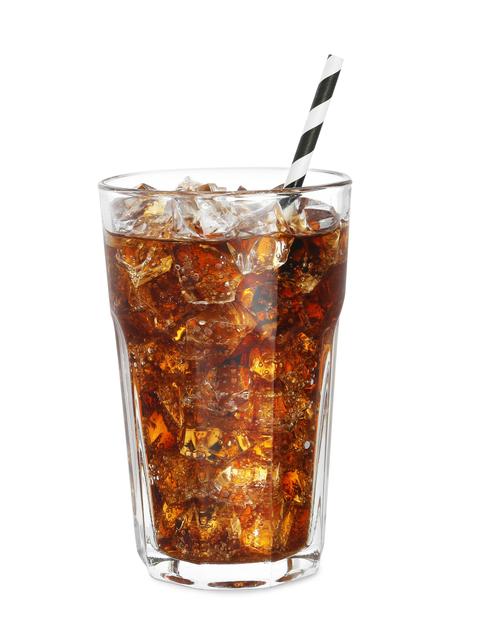Is Diet Soda Bad for You?

Pssssssssssssch!
As far as simple pleasures go, popping a tab on a can of soda and hearing that sound ranks pretty high. And then, the first sip — which, in my humble opinion, is always the best sip.
Thankfully, diet soda helps to keep this sweet indulgence from being decadent. But, does diet soda give you a free pass to enjoy soda guilt-free? Is diet soda actually bad for you? And what about the WHO's recent statement that aspartame, a popular artificial sweetener used in many diet drinks, may "possibly" cause cancer?
Before you head to your local grocery store to stock up on your favorite diet pop, here are a few important things to consider:
Can diet soda cause cancer?
Some pretty serious claims have been made about the side effects of diet soda, linking it to high blood pressure, diabetes, dementia and even cancer.
Most recently, a World Health Organization (WHO) committee, the International Agency for Research on Cancer (IARC), classified aspartame as a "possible" carcinogen. Could that diet soda sitting in your fridge be harmful if consumed long-term?
It's worth starting by defining this classification. The IARC labeled aspartame as a Group 2B carcinogen, meaning it could "possibly be carcinogenic to humans." In the statement, the group acknowledged that there's “limited evidence” the artificial sweetener may cause cancer. Interestingly, another WHO committee, the Joint Expert Committee on Food Additives (JECFA), also reviewed the same evidence and didn't raise concerns around the safety of aspartame.
Neither WHO committee recommended changing the acceptable daily intake of the artificial sweetener, which is about the equivalent of drinking more than 10 cans of diet soda per day. Most people consume much less than this, of course. And, by the way, most experts recommending limiting diet soda consumption to one can per day. (Related: PODCAST: Can You Really Indulge In Diet Soda Guilt-Free?)
The FDA notes that IARC's classification doesn't actually mean that aspartame is linked to cancer. The agency, which regulates aspartame as a food additive, still deems it to be safe for most people in the amounts usually consumed. Two other common artificial sweeteners, stevia and sucralose, have also been judged safe for consumption. There's no evidence that any cause serious harm, and claims stating otherwise remain unverified.
If you're concerned about the chemicals in diet soda and their impact on your health, consider cutting back on the amount you drink each day and, instead, opt for regular water or sparkling water.
Does diet soda make you gain weight?
Most of us make the switch from regular soda to diet soda because we're watching our weight and our waistline. Some theories suggest, however, that drinking diet soda has the opposite effect: It promotes weight gain. But how can a calorie-free beverage pack on the pounds?
The prevailing theory involves your brain chemistry and how it reacts to sweetness.
When you enjoy a diet soda, your brain senses the sweetness and expects a calorie boost. When no calories are provided, though, your appetite is triggered — leading you to find calories elsewhere. In fact, according to a study shared by the National Institutes of Health, "Heavier adults who drank diet beverages tended to eat more calories in the form of solid food." Additionally, they "ate significantly more snacks than those who had sugared drinks."
So, if you reach for a diet soda, be careful not to overcompensate elsewhere in your diet.
How much diet soda is too much?
Drinking a few cans of diet soda each day isn't likely to hurt you — but, it won't provide you with meaningful health benefits, either.
Instead of focusing on the question of whether diet soda is bad for you, consider your overall diet and lifestyle. For example, if you make good choices about the types of food you eat, the amount of water you drink and how much exercise you get, whether you drink diet soda or how much becomes less relevant.
But, as a good rule of thumb, it never hurts to limit the amount of processed foods in your diet and replace them with healthier options. (Related: How Ultra-Processed Foods Harm Your Health & Examples of What Counts)
By: Daniel Ford

















